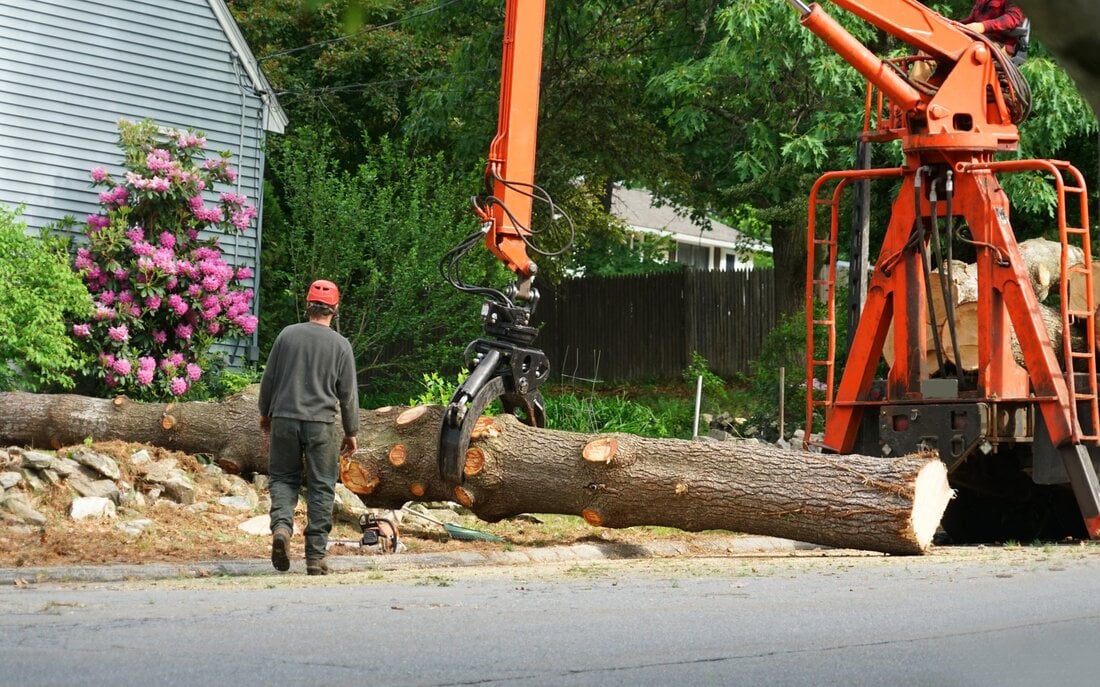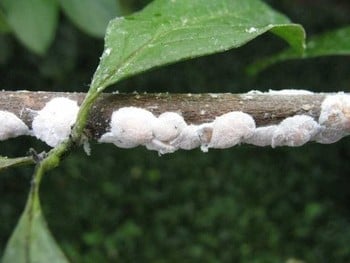They say warm winters can be a blessing and a curse and was certainly true this last year if you so happen to simultaneously be a New Englander and a nature lover. To be sure – not having to shovel mountains of heavy NH, ME and MA snow is nice, it did come a price; a price that was paid by our trees and shrubs.
Without cold weather to kill off or reduce insect populations, we’ve seen a big increase in insect infestations this year across the board. One of the most common infestations we deal with in our region is scale on trees – most specifically – Magnolia Scale.
Simply put, Magnolia Scale can wreak havoc on trees and is capable of causing a variety of ancillary issues for people and things that share general proximity to it. Today’s blog is going to help you learn what Magnolia Scale is, how to identify it – and most importantly – what you can do about it.
What is it?
Magnolia Scale is a common insect/pest that’s fairly common in Massachusetts, Maine, New Hampshire and our surrounding communities. Their females lay eggs on trees which then hatch and feed on the tree’s circulatory system causing damage by sucking out the tree’s sap and depriving it of the nutrients it needs to survive. They can cause a great deal of damage to their ‘hosts,’ including stunting growth, killing off branches or in the worst cases – killing the entire tree. So, get in touch with our professionals for
pest control treatment in Greenland NH.
How do I know if my tree needs Magnolia Scale Treatment?
Magnolia Scale is difficult to notice at first, but if you flip over the underside of your magnolia branches and seen white and grey pods on the undersides then we’re sorry to say – you’ve got Magnolia Scale.
Especially in a case where your magnolia tree is near a deck, or some sort of gathering place on your property – it’s important to get the tree treated. Not only can Magnolia Scale deprive a tree of its nutrients by drinking the sap from the tree, it can also excrete a waste product called honeydew. Honeydew is a clear, sticky film that you’ll find on the leaves of any tree infected with Magnolia Scale.
This honeydew can drop onto your cars, patios, decks, windows and the like – and trust us when we say – it can create quite the mess! In addition, a black fungus known as Scooty Mold can develop and grow on almost anything it lands on. So the last thing you’ll want to deal with is sticky, moldy furniture and fixtures at your house.
Also on a side note - and not to get too biblical about the many plagues of honeydew, but bees, wasps and hornets LOVE the stuff and are highly attracted to it. Very quickly, you could have more than one or two problems on your hands!
What to do about it?
Magnolia Scale and scale on trees can be treated with a registered insecticide in late August through September – when the eggs have hatched and you have the best chance of killing as much of the insect population as possible before the winter can blow in and finish the job. It also gives you the best chance of not having repeat offenders the following summer. However, in some extreme cases – treatments can last over the course of three years.
Dealing with Magnolia Scale on your own can be problematic – especially when using traditional insecticides. Not only does their waxy coating protect Scale from directly sprayed poisons, it can also kill a lot of the insect’s natural enemies and keeps them from feeding on the very same bugs you’re trying to kill. An early spring application of dormant horticultural oil will help control the pest while leaving its predators unscathed. In cases where the infection is widespread, it’s usually best to call a professional. If left inadequately treated, the problem will only worsen year to year as the Scale will mate in the fall and leave behind their offspring to spread even heavier the following year.
If you suspect that you have Magnolia Scale, give us a call and we’ll take a look free of charge and detail a magnolia scale treatment plan for you! We offer the best
pest control in Greenland NH.



 Magnolia scale, immature females in August. Photo by Missouri Botanical Garden
Magnolia scale, immature females in August. Photo by Missouri Botanical Garden